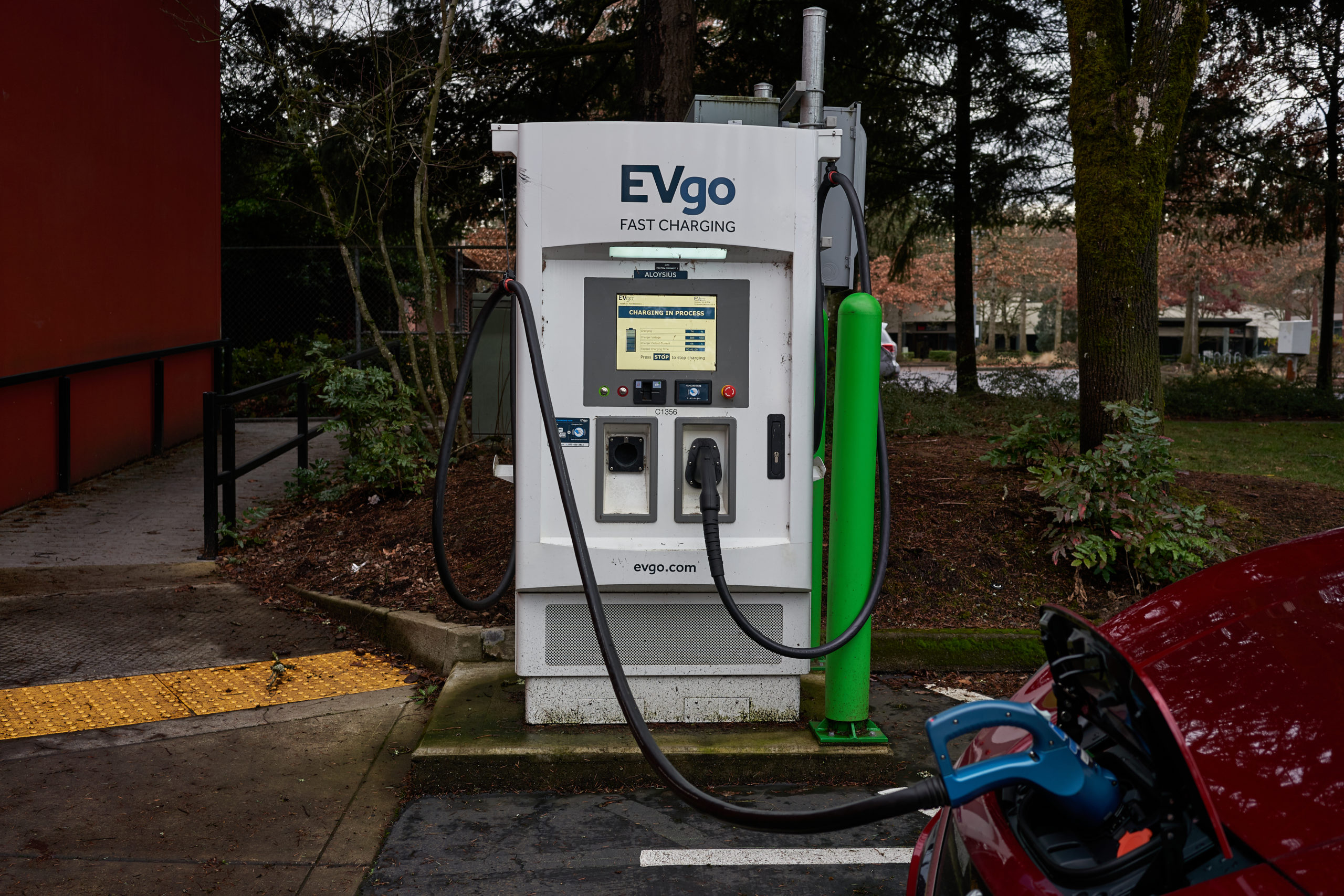
Enthusiasts, and I mean the dyed-in-the-wool wrenchers, homebuilders, and tinkerers, are the lifeblood of any automotive community. Those non-factory engineers and hobbyists have historically cultivated the foundation upon which car culture lives and thrives today. The qualities that modifiers and hot rodders imbue into their creations push demand from consumers and eventually trickle into the mainstream via automakers. This week a few seemingly-innocuous rules were put into place by a charging infrastructure giant, which I believe are grossly anti-enthusiast, and will only prove to hurt EV adoption.
On Monday, EVgo announced changes to its terms of service policy banning the use of charging adapter devices not made by an automaker, and prohibited all home-built vehicles, modified vehicles, and modified onboard chargers from connecting to its infrastructure. Obviously EVgo has taken the risk of building out the infrastructure and spent the money to install all of those stations — over 800 fast chargers, according to the company’s website — and it’s their prerogative to ban any customers from using its facilities, but it seems very short sighted to me.
Let’s take all of these points individually and pick them apart to see why I feel this way.
EV customers using a charging adapter are a tiny minority of the industry, largely limited to U.S.-based Tesla owners who need to charge somewhere other than a Supercharger station. If you’re someone who lives in an area not served by a Supercharger, or perhaps your office parking lot has an EVgo station, then maybe you’ve purchased a charging adapter. Tesla does offer a CHAdeMO adapter for $400, and is allegedly working on a CCS adapter. If you were one of those consumers who purchased a less expensive CHAdeMO adapter, or one of the “nonauthorized” CCS adapters, EVgo has effectively rendered that purchase useless.
Obviously this second example is nothing more than hypothetical, but let’s say that the lesser charging standard, which is definitely CHAdeMO, is eventually phased out completely. For the purposes of this experiment, CCS is already the dominant standard, and maybe it becomes the mandated standard by the Department of Transit in the next decade. In that instance, there will likely be a fairly large cottage industry for CHAdeMO to CCS adapter intelligent devices. If Nissan doesn’t develop its own adapter, will hundreds of thousands of Leafs now be limited to single-charge trips and home-charging? Such a circumstance would seriously hinder the used car market and adoption growth of EVs.
Similarly, most home-built machines are constructed with CHAdeMO onboard charging signaling. There are a few modern conversions happening out there right now with CCS onboard charging, but it’s still new days for such technology. Like the Leaf, many of these swapped vehicles would also be left behind by a wholesale move away from CHAdeMO. That’s a hypothetical story for another time, but it brings me to my second and most important point!
Think, if you will, for a moment about how many modified cars there are in the world. Hundreds of companies exist solely for the purpose of making cars go faster, drive better, or just look different in a way the owner appreciates. The electric vehicle market has long been a home for tinkerers and inventors looking to find a way to reduce their dependence on fossil fuels. But now, after EVs have found some semblance of mainstream acceptance, the market is turning its back on those progenitors. The very same people who proved electric vehicles were not only possible, but could be desirable, have been given a swift kick to the curb now that you can buy an EV at a dealership down on the motor mile.
By banning home-built EVs, custom-built onboard chargers, or modified EVs of any kind, EVgo is turning its back on the most fervent of EV supporters. This means any of the hundreds of EV West motor swap customers have been banned. Any of those crate motor companies won’t be able to charge anymore. Even a mad genius like Bisimoto, with his incredible Tesla-swapped Porsche 935, won’t be able to use an EVgo station. Hell, even General Motors Performance Products is developing an electric swap kit, and none of those will be able to use the EVgo network. I’m working on my own electric-swapped project and won’t be able to use EVgo services after that point. It’s a bummer.
This feels a lot like Shell putting out a news release stating that anyone with an LS-swapped vehicle of any kind won’t be able to use their gas stations anymore. It feels like an impingement on our ability to continue to grow enthusiasm in electric vehicles. It feels like an indictment of our home-built cars, and by dint of the fact that we’ve poured so much heart and soul into them, an indictment of our own being.
It is well within EVgo’s right to make this decision, I’m not trying to argue some crazy point like it being unconstitutional, or anything. This isn’t cancel culture gone mad. This is a corporate decision which is totally legal and from some points of view even understandable, but one with which I completely disagree.

